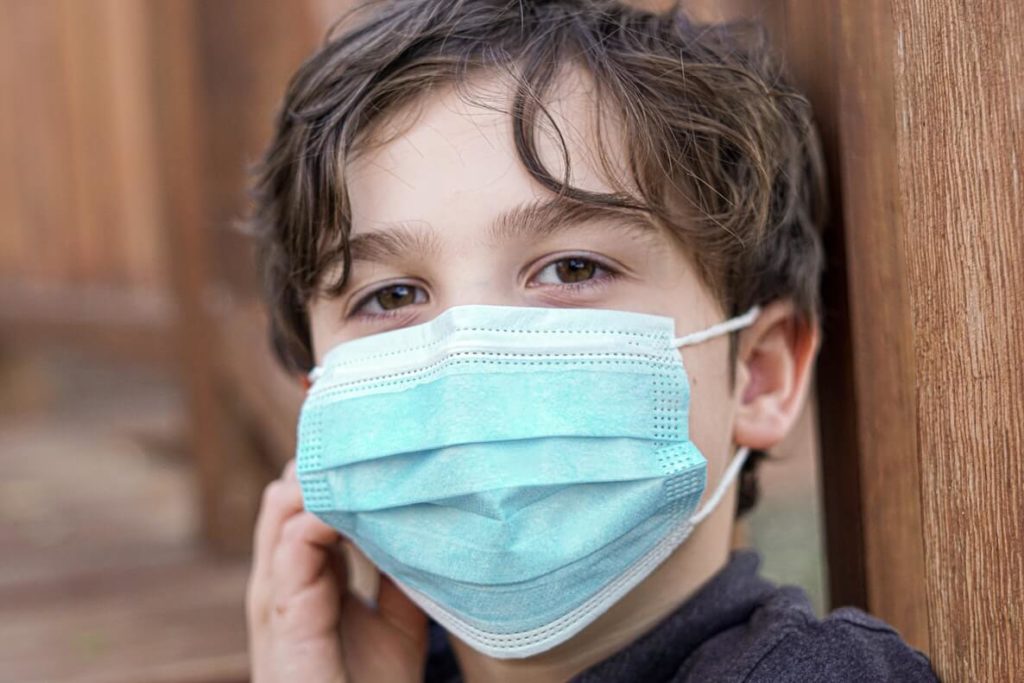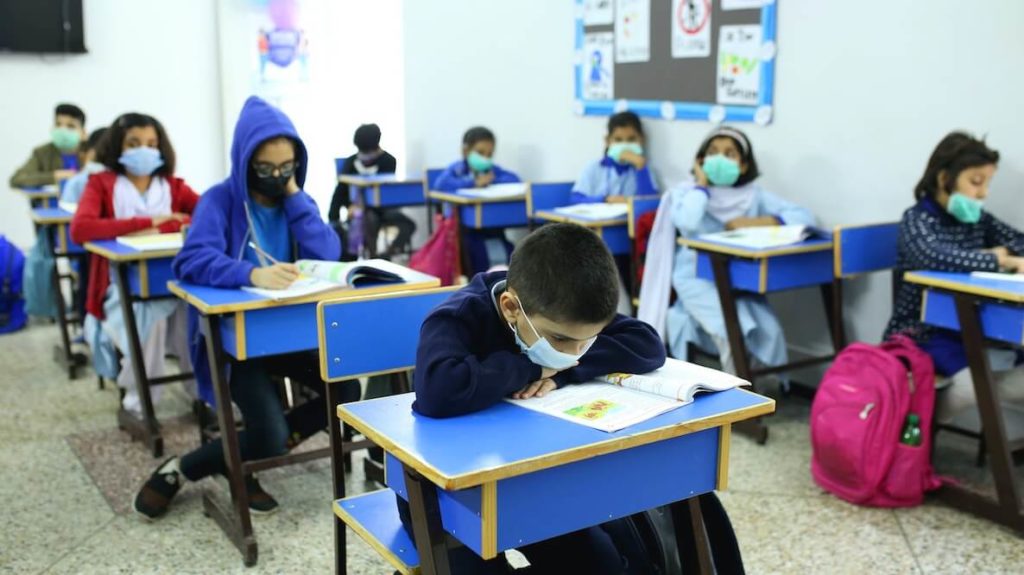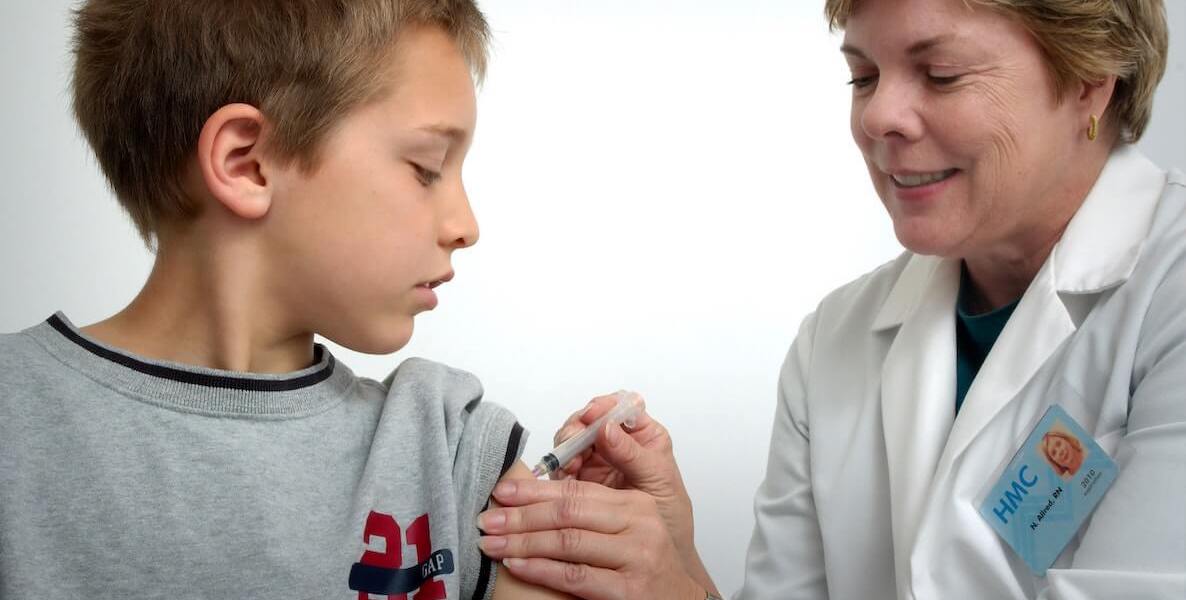Remember March? Back when, at least for a subset of folks, it felt like competing in The Amazing Race just to find an available Covid-19 vaccine? Since then, the headlines have only seemed to change from one day to the next:
Not enough vaccines!
Too many vaccines are going to waste!
This community is refusing! That community gets a gold star!
You, get a booster! No, not you…you!
And now, The Next Big Story: the forthcoming approval of the Pfizer vaccine for children ages 5 to 11, which experts anticipate will happen by the end of the calendar year.
But looking at the mixed success—and mixed messages—of the adult vaccine rollout, what have we actually learned? What has worked well—and can successes in the adult realm translate into getting as many of our littlest citizens vaccinated as quickly and safely as possible?
Here’s hoping, particularly given that, since children returned to schools, cases among them have risen at an alarming rate across the country: The American Academy of Pediatrics reported that, in August, there was a five-fold increase in cases. Child cases went from about 38,000 the week ending July 22 to more than 200,000 in the last week of August.
“This is our ticket out of this. I look to the day when a person is sick with Covid and it’s like being sick with the flu, but it ends there,” says Dr. Klock. “And the vaccine for the 5-11 [age group] is one of the next steps towards that.”
A vaccine for children could be the turning point the world needs. At least, so says Dr. Barbara Klock, medical officer for the School District of Philadelphia, with tears welling up in her eyes via Zoom one late September day: “This is our ticket out of this. I look to the day when a person is sick with Covid and it’s like being sick with the flu, but it ends there. And the vaccine for the 5 to11 [age group] is one of the next steps towards that.”
With that in mind, we turned to experts in medicine, policy, and community engagement to get some sense of what has worked—and how we should move forward.
Why the things that worked, worked
Depending on where you get your news, the vaccination process has either been a complete failure or, at best, a mild success. The reality, of course, is more nuanced and depends on how you frame it.
As of September 28, the U.S. was 62nd in the world in terms of the percentage of the country’s population who’d received at least one dose of the vaccine; Pennsylvania was 10th out of all U.S. states, with 72 percent of the Commonwealth’s population receiving at least one dose of the vaccine. Data is lacking on the precise number of teens who’ve received the vaccine, since Census data does not cluster together teens ages 13-19, but data shows that approximately 47,362 of our 104,603 kids ages 12-17 have gotten at least one dose—about 45 percent.
But the Philly Metro Area ranked 94th among metropolitan regions, with just 64 percent of our eligible residents vaccinated. (The Metro Area includes Philadelphia, Camden and Wilmington.)
Zoom in a little closer, though, and there are bright spots: 95 percent of Philly’s Asian American and Pacific Islander (AAPI) community is vaccinated. Among our Hispanic demographic: 73 percent of adults are vaccinated. “All of the other demographics seemingly leveled off in April, May, but they didn’t,” explains James Garrow, communications director for the Philadelphia Department of Public Health.
“We want every single person who’s eligible to get the Covid vaccine, in whatever way is easiest for them, in whatever way makes the most sense for them. That’s our ultimate recommendation,” says James Garrow.
Garrow says those success stories are in large part due to the convenience factor: Philly’s two FEMA vaccination sites were set up in Chinatown and at Esperanza Health Center, in the heart of Philly’s largest Asian and Hispanic communities, respectively. Both sites made sure there were translators on hand, a factor that Wei Chen, head of Civic Engagement for Asian Americans United, says was critical at the Chinatown location.
There’s also been what Garrow calls a “perceptible” bump in African American vaccinations in the last six weeks.“It’s not world-changing, but it’s definitely a higher slope than any group besides Hispanics,” he says.
Do these insights suggest that location and convenience are the answers? At least partly. But more than that, say experts, they underscore the importance of reliable, culturally-sensitive sources, and trust. (This is the same lesson Penn and partners learned from a series of vaccine clinics in West Philly in the spring.)
“The most important [factor] was letting community organizations co-host the vaccination site,” Chen says. “Sometimes people don’t trust the government, but they trust a community organization that serves them, understands them, has a similar language and history and background. So having them educate and distribute the vaccine is very important.”
He adds: “We have many medical experts who are fluent in Chinese and from Asian and refugee families—they understand the concerns, they know the history and background people in our communities come from. They’re able to connect with community members to say, Hey, I’m also from a refugee community, and I’m from your community, and I am a medical expert, you can trust me. We need those medical experts to explain issues like why the vaccine works, why we’d need to take a third dose, why this will work for children and what’s the difference between the adult and children’s vaccine, so that parents have the chance to learn, to think, and to discuss with their partner and their family member what is safe for their children. ”
Children are not mini-adults

Alas, preparing for and executing the rollout of the children’s vaccine is not as simple as mimicking what’s worked for adults in large part because of the issue of consent. And looking at the rate of teen vaccination isn’t predictive, either, since teens in Philly ages 12 and up are authorized to make their own vaccination decisions—a holdover from the push to get young people the HPV vaccine, to prevent sexually transmitted diseases.
Younger children, however, require caregiver consent, and that involves another layer of hurdles.
Because of that caregiver-as-gatekeeper situation, says Dr. Angela Shen, retired captain, US Public Health Service, and visiting research scientist at the Vaccine Education Center at Children’s Hospital of Philadelphia, it’s going to be critical for pediatricians and family medicine doctors to be involved.
“Parents need recommendations from trusted providers,” Shen says. Whereas adults typically see many different providers—half of the adults in our country have multiple conditions and have primary care doctors and specialists—many parents, Shen believes, are going to want their child to receive his or her shot in what practitioners call the “medical home,” which is your pediatric or family practice office.
“Sometimes people don’t trust the government, but they trust a community organization that serves them, understands them, has a similar language and history and background. So having them educate and distribute the vaccine is very important,” says Wei Chen.
To that end, Garrow says that the City is conducting extensive outreach to the pediatric practices enrolled in the CDC’s Vaccines for Children program, which provides free vaccines to children in underserved communities; the City is out there training practices in the finicky storage, preparation, and reporting required with the Pfizer vaccine. It bodes well, he says, that Philadelphia has one of the most robust networks for the Vaccines for Children program in the country, and routinely leads the U.S. in routine child immunization rates. There are about 150 Vaccines for Children sites in Philadelphia; currently, about 90 (60 percent) of those providers are enrolled to be able to administer Covid vaccine, with the City working to enroll more every day.
That said, there are real challenges to expecting pediatric practices to take on the immunization burden: Not only does the Pfizer vaccine require special storage and diluent and new reporting practices, but many pediatric practices simply aren’t large enough to enable appropriate social distancing for the required 15-minute wait time post-shot.
Many practices, then, may find it necessary to refer patients to pharmacies, which are currently the biggest providers in the city of the Covid-19 vaccine. A spokesperson for Rite Aid, Bradley Ducey, couldn’t comment yet on plans for rolling out the vaccine for children, but would say the company has “Pfizer vaccines available at each Rite Aid location, with enough supply to meet a possible increase in demand from expanded eligibility.”
Shen believes it may be easier as a model to refer patients to pharmacies because they have the capacity and capability and they’re authorized to immunize children. Bonus: For older children, who don’t see their pediatrician as regularly as younger ones, the pharmacy may already be a trusted source with which families have many touch points.
School Zone
Starting with the polio vaccine in the 1950s, which underwent trials with more than 1.3 million elementary school children in 1954, and into the 1960s with the rubella vaccine, families didn’t bat an eye at the idea of administering immunizations at school. But, says Klock, the School District’s Medical Officer, today’s parents are decidedly not the parents of the ‘50s and ‘60s. “Many five-year-olds want their mommy or daddy there when they get their vaccines, and mommy or daddy want to be there, too,” she says.
And that’s just one barrier to conducting large-scale school immunization programs, which, to outsiders at least, seem like the most logical intervention. Instead, what Klock hopes to be able to do once the vaccine is approved, is partner with organizations that can provide the vaccine—like CHOP, PDPH, City Life Health—to organize vaccine events. (To be clear: The School District of Philadelphia does not receive doses to administer; they must partner with an organization that has access to the doses.)
Partnering with outside organizations also alleviates the burden on school nurses, who are already taxed. “In my head, I’m already planning vaccine events for the five and up set. I’m not using my MD as much as I’m using my party-planning skills,” Klock says. Before she does, she intends to survey parents about their comfort level with various iterations of vaccine events.
Changing minds and behaviors

Dr. Aparna Kumar is an Assistant Professor at Thomas Jefferson University and a founding member of Dear Pandemic, the website that helps to make sense, for the general public, of the confusing information surrounding Covid-19; there are many things she and her teams at both Jefferson and Dear Pandemic have learned.
Critically: The strongest predictor of whether a child will be vaccinated is their parents’ vaccination status. That’s not to say that it’s a one-to-one matchup, wherein all vaccinated adults will vaccinate their children. Instead, she says, “There are many factors that seem to influence the decision to vaccinate a child. Unfortunately, age is one of them and people seem less likely to make this decision if they have a younger child.”
She thinks of it this way:
- If I am a parent and I am vaccinated, I am more likely to consider vaccinating my child.
- But I am less likely to vaccinate my child than I am myself. Primary concerns include: safety, waiting for real-world studies (reactions, potential side effects), and assessment of risk vs. benefit (viewing children as lower risk—which is not entirely wrong but also not a population-based approach to considering an individual decision).
- I am more likely to vaccinate my child than someone who is not vaccinated. But, I still may be hesitant.
- If I am unvaccinated, I am much less likely to vaccinate my child.
Rates may not exactly match parent to child, when we consider this unofficial flowchart. But a new Kaiser Family Foundation survey found that 34 percent of parents whose children are 5-11 said they would have their children vaccinated as soon as possible, an increase from 26 percent in July.
Kumar believes that we have to come to those who are hesitant with real empathy, trying to understand what their concerns are—and addressing them, one by one. And so she, like Garrow and Shen and Klock, believe that vaccinating as many children as possible will come down to a multipronged, multifaceted approach. We have to keep the information coming in culturally sensitive ways. We have to provide convenient access to the vaccine. And we have to tap into people’s motivations, incentives, for behavior change.
“What’s the reward for people when it comes to vaccinating their children?” Kumar asks. “Is it getting your child back to activities? Enabling them to be more comfortable in school? Feeling safe in your own daily activities? The reality is that it’s going to be different for different groups of people. And the more trusted messengers people have in their lives, the more helpful that will be. People need to hear it in a million different ways. They [need to] read it, hear it, talk to someone. And those one-on-one conversations and endorsements are the biggest change factors for people.”
The bottom line: There will be no one silver bullet to rolling out the children’s vaccine. The “magic” will come down to no fairy dust at all, but instead education, execution, empathy, and adaptability.
“The thing that we’ve learned,” says Garrow, “is that what is needed at any one time with the vaccine rollout changes over time.”
But the thing the planet needs is unwavering. As Shen says, “It’s in public health’s best interest—it’s in the world’s interest—to vaccinate as many people as soon as possible. I know my 10-year-old is ready. Her sleeve is rolled up.”
![]()
MORE ON THE COVID-19 VACCINE IN PHILADELPHIA




